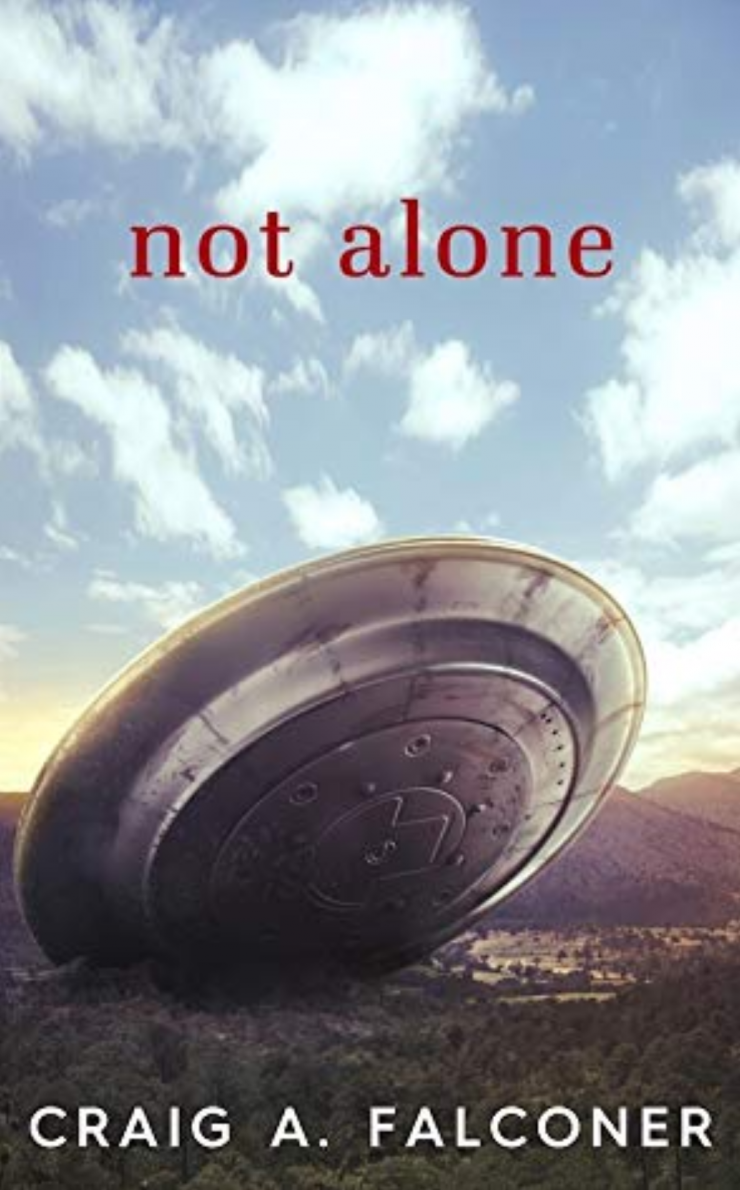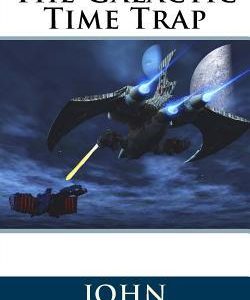Read this book if you
- Want a realistic exploration of the consequences of disclosure
- Like interesting and unexpected plot twists near the end of a book
- Enjoy a writing style is engaging
- Like finding similarities between fictional characters and their real-world counterparts, events, and consequences
Avoid this book if you
- Are easily frustrated by some unnecessary details make the story longer in some parts
- Rely on a consistent pacing throughout the story since pacing in this story is uneven, with a seemingly rushed ending
- Want a dynamic protagonist since many characters can be a bit static
In his speech to the United Nations in 1987, Ronald Reagan stated,
I occasionally think how quickly our differences worldwide would vanish if we were facing an alien threat from outside this world.
Craig A. Falconer imagines just this scenario and the consequences in his novel Not Alone.
Taking place in a universe where Disclosure, or the revelation that alien life exists, Craig A. Falconer explores the impact such an announcement would have on the world.
Mentions of organizations like SETI and appearances of conspiracy theories like hidden Nazi gold make the story appear to take place in a parallel universe.
Plot
Dan McCarthy stumbles upon proof of an alien cover-up and decides to release the evidence to the world. As a result, the people around the world must learn how to deal with the knowledge of the existence of intelligent alien life.
Characters
The protagonist, Dan McCarthy, would likely fit the idea most people have of people who believe in alien conspiracies: socially awkward, quiet, and anxious. But Dan has one strong quality: his commitment to the truth.
It’s this dedication to the truth that motivates Dan’s actions and drives the plot and protects Dan against accusations of financial motives.
Rounding out the cast of characters are Emma Ford, a public relations expert, and Dan’s ex-military brother, Clark.
Setting
The story takes place in the small town of Birchwood, Colorado. This unassuming town with its drive-in dominates the setting of the novel.
Birchwood is a stand-in for any other small town in the United States. And much like Dan, the nondescript small-town setting serves as an unobtrusive setting for the more important story that is Disclosure.
Not Alone Review
Fair warning: if you’re looking for an action-packed story about aliens and abductions, you’ll want to look elsewhere. Not Alone isn’t filled with epic space battles or alien invasions. Nor is it filled with spaceships and awe-inspiring technologies.
Those going into this novel expecting action will be sorely disappointed. And those who continue reading hoping that the novel “picks up” will be similarly let down.
With the exception of the ending of the novel, the pacing of the story remains consistently, and sometimes frustratingly, slow.
Instead, Not Alone answers the question of how disclosure might happen and what the consequences of disclosure may be.
If you’ve guessed that one of those consequences of Dan’s alien proof release is media ridicule, then you’d be correct. But the story goes beyond ridicule, examining how Dan’s decisions and actions can direct social response and behavior.
If there’s one drawback to Dan, it’s just that he’s not that interesting. In fact, you could say he’s a bit one dimensional. Maybe that’s purposeful in that the plot needs an unassuming, honest, and boring character like Dan to be the protagonist. Anyone else may distract from the story.
We live in an age of (mis)information. Anyone can publish on the internet, and anyone with enough skill can easily misinform others.
That’s where Dan’s honesty and pursuit of truth comes in: his refusal to benefit financially gives him a huge boost of credibility.
While a supporting character, Emma Ford is more interesting and engaging. She learns, changes, and adapts, whereas Dan remains fairly static throughout the story.
The novel imagines what would happen after disclosure, pointing out events like international collaboration, panic, protests, and the rise of cults.
These aspects of the novel are based on real-world events like the Heaven’s Gate cult in the 1990s or the panic that ensued with Orson Welles’ broadcast of “The War of the Worlds.”
The more I shed my preconceptions about the title, the more I enjoyed the pacing. The slower speed gave me time to consider plot, and having time to imagine how our own world would deal with the knowledge of aliens was enjoyable.
My only real complaint is the rollercoaster of plot turns that takes place near the end of the story. These plot turns really interrupt the established pacing found earlier.
The ending left me feeling cheated out of the story that I was anticipating because of the title. And because these events weren’t really developed like the consequences of the leak, I felt as though something was missing. I look forward to seeing these events developed in the next book.
While this is only the first book of the trilogy, the transition to the next book could have been a bit smoother.
Conclusion
Drawing inspiration from the Pioneer plaque and the real-world UFO researchers who are pushing for Disclosure, Falconer weaves elements from the UFO field into a coherent and interesting story.
Indeed, Disclosure can happen any day. If that day happens, I hope we are able to put aside our differences like Reagan imagined in his UN speech over 3 decades ago.
Overall, I’d recommend this book if you’re looking for a science fiction story with a more plausible plot. Missing from this first book are the enormous spaceships, wondrous technologies, or epic space battles. But in their place, you’ll find a very human story that is not only plausible, but also highly probable if disclosure were to happen.



